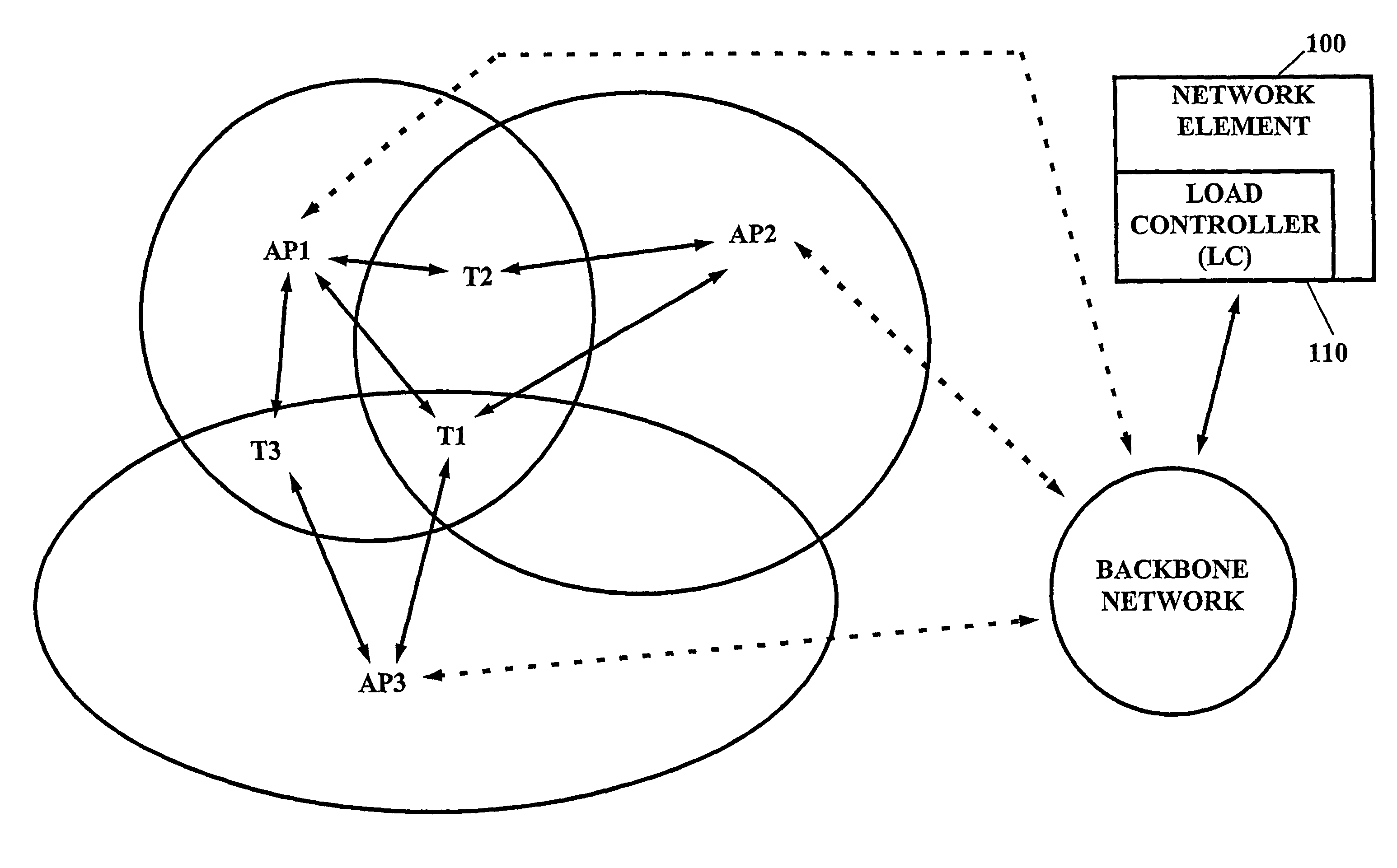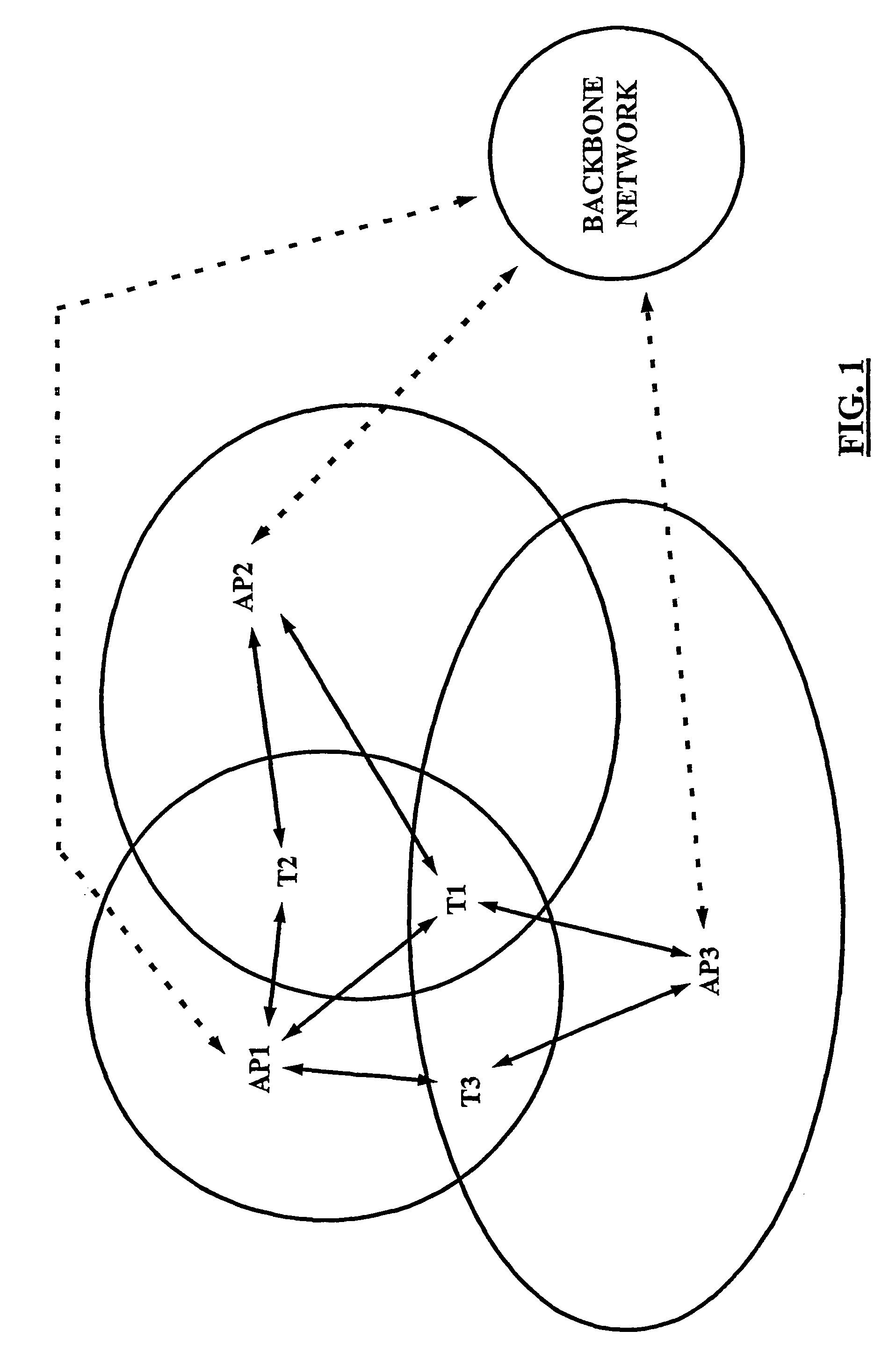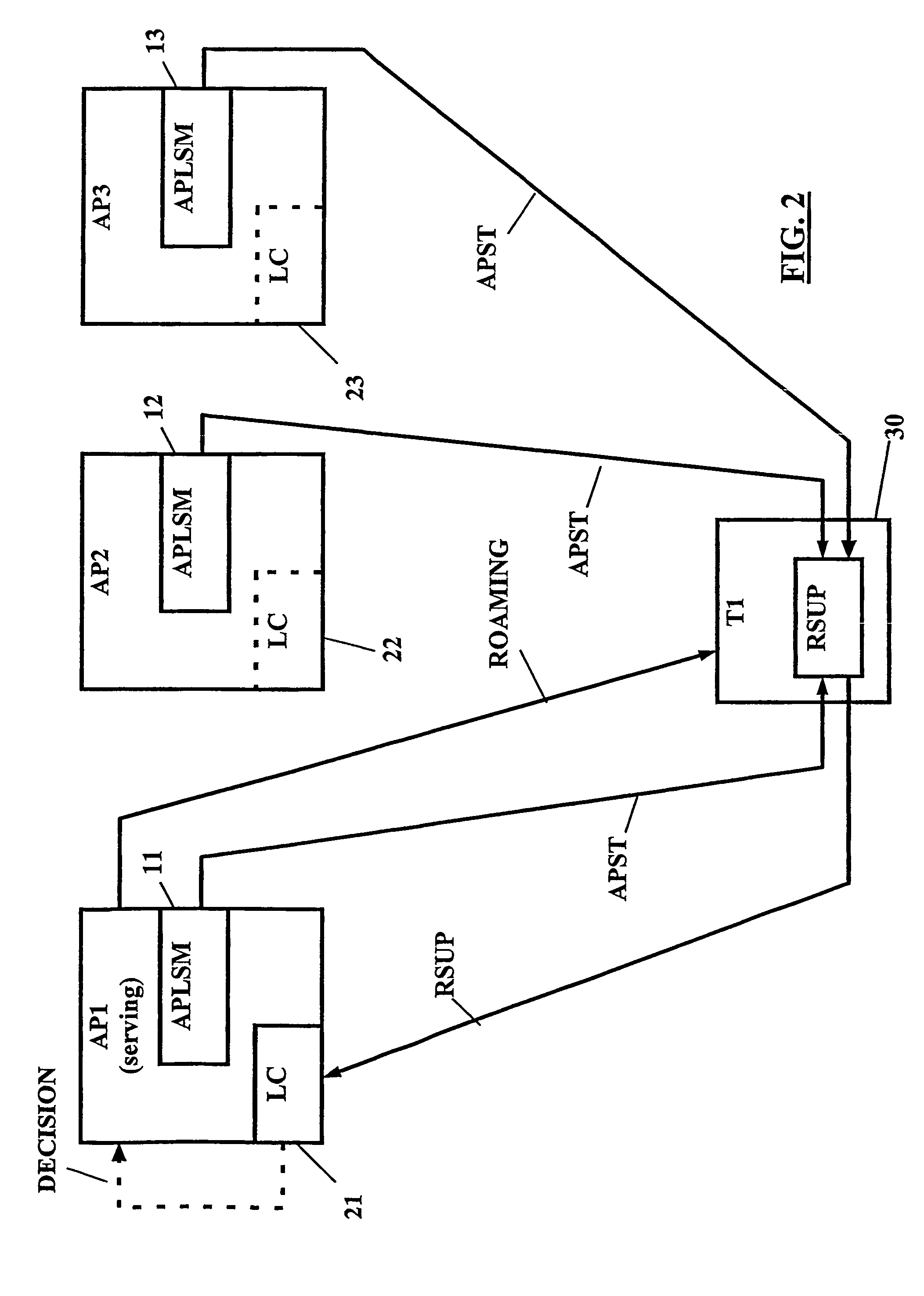Load balancing in wireless communication network
a wireless communication network and load balancing technology, applied in the field of wireless communication network load balancing, can solve the problems of unsatisfactory communication connection quality, unconsidered load situation in wireless communication network, and inability to balance load between respective aps, etc., to achieve the effect of improving load balancing in wireless communication network
- Summary
- Abstract
- Description
- Claims
- Application Information
AI Technical Summary
Benefits of technology
Problems solved by technology
Method used
Image
Examples
first embodiment
[0036]the present invention is described with reference to FIGS. 1, 2 and 3.
[0037]Referring to FIG. 1, a wireless communication network such as a WLAN comprises several access points AP1, AP2, AP3 as communication control elements. Furthermore, in the example shown, a backbone network is provided which serves as a distribution network for connecting the APs to one another and to external destination points such as other WLANs or fixed networks. For connecting the APs to the backbone network, commonly known input / output (I / O) interfaces are used.
[0038]Each of the APs defines a cell of a specific size (indicated by the circles surrounding the APs). Subscriber terminals T1, T2, T2 within the network may be associated (connected) with one AP (serving AP) in whose cell they are located. In the present example, as the starting situation, subscriber terminal T1 is associated with AP1, T2 is associated with AP2, and T3 is associated with AP3.
[0039]Irrespective of its specific type (e.g. per...
second embodiment
[0066]Next, a second embodiment will be described with reference to FIGS. 4 to 7.
[0067]It is to be noted that some of the means, functionality and procedures of the second embodiment are parallel to corresponding means, functionality and procedures of the first embodiment. Thus, a repetition of a detailed description thereof is omitted.
[0068]FIG. 4 shows a wireless communication network such as a WLAN comprising several access points AP1, AP2, AP3 as communication control elements, a backbone network as a distribution network for connecting the APs to one another and to external destination points such as other WLANs or fixed networks. Furthermore, a separate network element 100 is provided which comprises a load control device (LC) 110. The separate network element 100 is connected to the access points by the backbone network for exchanging data.
[0069]Subscriber terminals T1, T2, T2 located in cells defined by the access points AP1, AP2, AP3 may be associated (connected) with one A...
PUM
 Login to View More
Login to View More Abstract
Description
Claims
Application Information
 Login to View More
Login to View More - R&D
- Intellectual Property
- Life Sciences
- Materials
- Tech Scout
- Unparalleled Data Quality
- Higher Quality Content
- 60% Fewer Hallucinations
Browse by: Latest US Patents, China's latest patents, Technical Efficacy Thesaurus, Application Domain, Technology Topic, Popular Technical Reports.
© 2025 PatSnap. All rights reserved.Legal|Privacy policy|Modern Slavery Act Transparency Statement|Sitemap|About US| Contact US: help@patsnap.com



